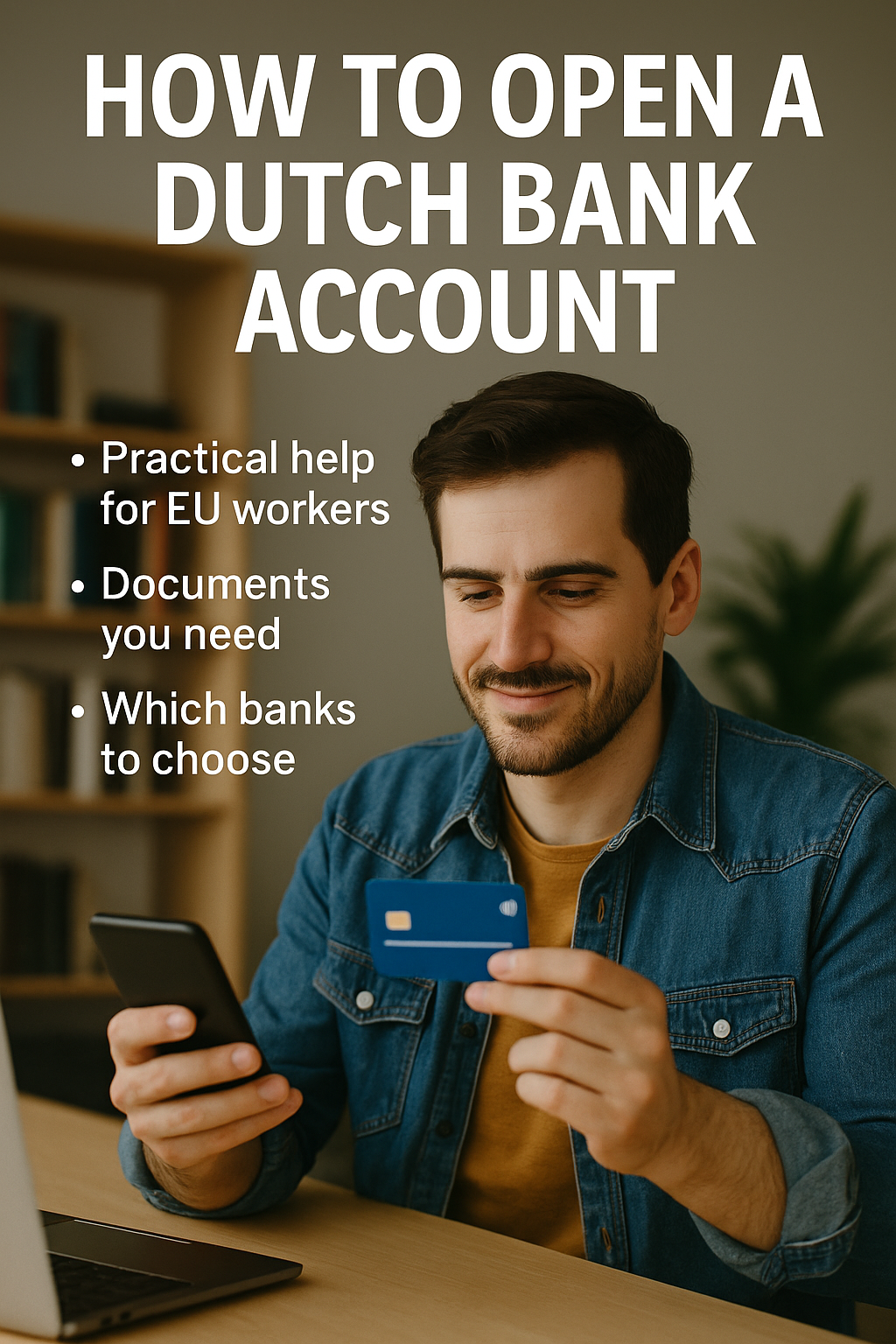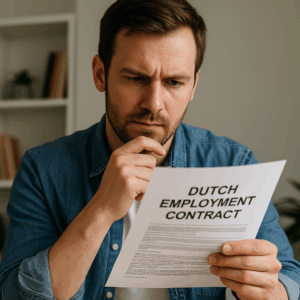How to Open a Dutch Bank Account (2025 Guide)
Need a bank account in the Netherlands? This guide explains how EU workers can open a Dutch bank account quickly and easily in 2025 — including what documents you need, which banks to choose, and what to expect during the process.

Practical help for EU workers living or working in the Netherlands
🧾 Why you need a Dutch bank account
If you’re working in the Netherlands, you’ll need a Dutch bank account (IBAN) for:
- Receiving your salary
- Paying rent and utilities
- Getting zorgtoeslag (healthcare benefit)
- Managing subscriptions and online purchases
Most employers and government services require a Dutch bank account — even if you’re from the EU.
🧍 Who can open one?
You can open a Dutch bank account if:
- You have a valid EU passport or ID card
- You have a BSN number
- You have a Dutch address (or proof of stay)
- You are at least 18 years old
Even if you are new in the Netherlands or working temporarily, you have the right to open a basic bank account.
📝 You don’t need to speak Dutch to open an account, but you do need to understand the conditions.
🏦 Which bank should you choose?
There are several major banks in the Netherlands. All of them offer accounts for EU workers.
Popular banks:
- ING – English app, fast online signup
- ABN AMRO – Strong expat support, English service
- Rabobank – Reliable, Dutch-focused
- Bunq – 100% digital, ideal for fast setup
- SNS / Knab – Cheaper, but more Dutch-language focused
🔍 Tip: Choose a bank with an app available in English, and check if the interface is user-friendly.
📦 What type of account do you need?
A basic current account (betaalrekening) is enough. You’ll get:
- An IBAN number
- A debit card (pinpas)
- Access to online banking (internetbankieren)
You do not need a credit card or savings account unless you want them.
📋 What documents do you need?
Most banks will ask for:
| Document | Notes |
|---|---|
| Passport or EU ID card | Must be valid |
| BSN number | Often required — check in advance |
| Proof of address | Rental contract or letter from employer |
| Employment details | Work contract or agency registration (optional but helpful) |
| Dutch phone number | Often required for account verification |
Some banks offer online video identification, while others require a visit to a physical branch.
🕐 How long does it take?
- Digital banks (like Bunq): Often within 15 minutes
- Traditional banks (like ING / ABN AMRO): 1–5 working days
Once approved, you’ll receive:
- Your IBAN (immediately or within 1 day)
- Your debit card by post (within 3–5 days)
⏳ If you’re in a hurry, start with a digital bank, then switch later if needed.
💸 What does it cost?
Basic Dutch accounts are not free, but prices are reasonable.
| Bank | Monthly Fee | Notes |
|---|---|---|
| ING | ~ €1.90 | Includes debit card |
| ABN AMRO | ~ €2.00 | Good English support |
| Bunq | €2.99 – €8.99 | Digital-only, fast |
| Rabobank | ~ €2.25 | Traditional branch-based service |
You’ll also pay ~€0.05 to €0.15 per transfer abroad (SEPA) or more for non-EU payments.
📲 Bank app & online banking
All banks offer an app, but support in English varies.
Make sure your phone is ready for:
- App verification
- 2-step login (SMS or app-based)
- Receiving important messages from the bank
Most apps allow you to:
- Check balance
- Pay invoices (Tikkie or iDEAL)
- Contact customer service
🛑 Common problems
- No BSN yet? → Some banks (like Bunq) allow temporary sign-up without it
- No Dutch phone number? → You’ll need one for login/security in most cases
- Low English support? → Choose ABN AMRO or Bunq first
Never let an employer force you to use their chosen bank. You have the right to open your own account.
✅ Summary: Steps to open a Dutch bank account
| Step | Action |
|---|---|
| 1 | Choose a bank that fits your needs |
| 2 | Gather documents: ID, BSN, address |
| 3 | Apply online or visit a branch |
| 4 | Activate account and get IBAN |
| 5 | Receive card by post and start banking |




